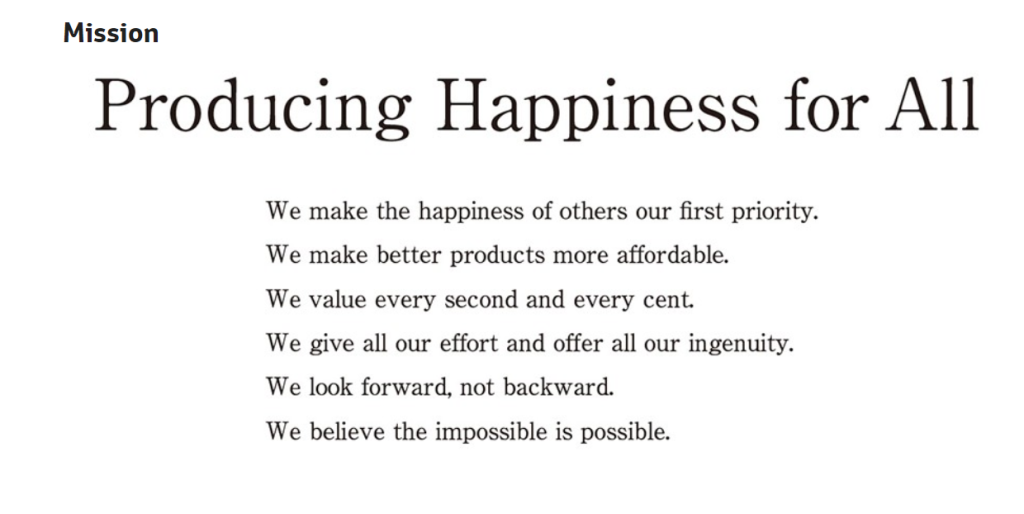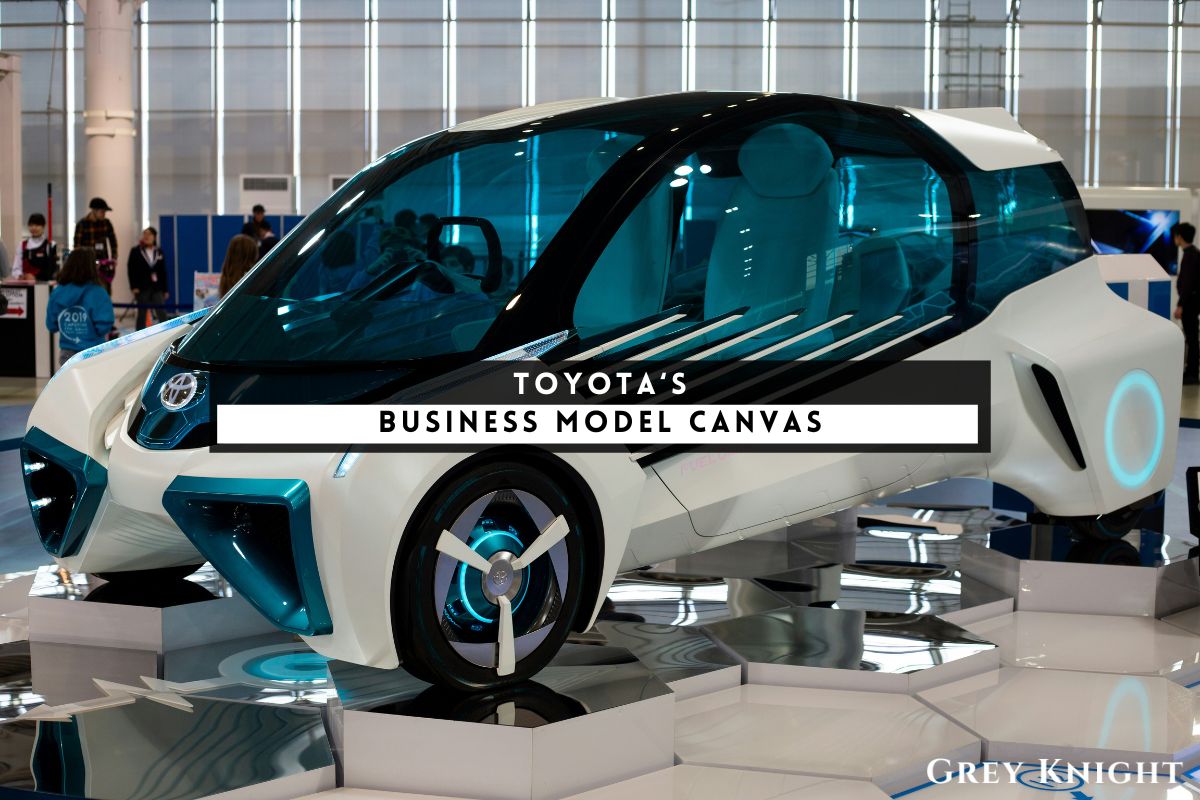Table of Contents
ToggleA Brief History of Toyota
Toyota Motor Corporation is a Japanese multinational automotive manufacturer founded by Kiichiro Toyoda in 1937. The company’s origins can be traced back to the Toyoda Automatic Loom Works, a textile machinery business established by Kiichiro’s father, Sakichi Toyoda.
In 1933, Kiichiro Toyoda visited the United States and Europe to study automobile production and assembly line techniques. This experience inspired him to diversify the family business and venture into the automotive industry. In 1937, the first Toyota Type A engine was completed, and in the same year, the company produced its first passenger car, the Toyota AA.
In the decades that followed, Toyota expanded its operations globally and became known for its efficient production techniques and high-quality vehicles. In the 1960s, Toyota began selling cars in the United States and quickly gained a reputation for reliability and fuel efficiency.
Toyota’s commitment to continuous improvement and innovation led to the development of the Toyota Production System, which revolutionized manufacturing processes in the automotive industry. The company also became a leader in hybrid and fuel-efficient vehicle technology with the introduction of the Prius, the world’s first mass-produced hybrid car, in 1997.
Today, Toyota is one of the largest automakers in the world, with a diverse portfolio of vehicles ranging from compact cars to heavy-duty trucks. The company continues to be a pioneer in sustainable mobility, investing in alternative fuel technologies and exploring new forms of transportation. With a focus on quality, innovation, and sustainability, Toyota Motor Corporation remains a prominent force in the global automotive industry.
Who Owns Toyota?
Toyota Motor Corporation is a multinational automotive manufacturer headquartered in Toyota City, Japan. The company was founded by Kiichiro Toyoda in 1937 and has since grown to become one of the largest automakers in the world. As of 2021, Toyota Motor Corporation is owned by a diverse group of shareholders, with the majority being institutional investors. The top 10 shareholders of Toyota Motor Corporation are The Master Trust Bank of Japan, Nippon Life Insurance Company, Toyota Industries Corporation, Japan Trustee Services Bank, Ltd., The Bank of Tokyo-Mitsubishi UFJ, Ltd., State Street Bank and Trust Company, Japan Trustee Services Bank, Ltd. (Trust Account), Nippon Life Insurance Company (SMTB), State Street Bank and Trust Company (SMTB), and BlackRock Japan Co., Ltd. These shareholders have a significant stake in the company and play a major role in its ownership and governance.
Toyota Mission Statement

The mission statement of Toyota Motor Corporation is to provide innovative, safe, and sustainable mobility solutions for all. The company aims to exceed customer expectations, contribute to the development of a prosperous society, and lead the way in creating a more inclusive and sustainable future. Toyota is committed to continuous improvement, embracing diversity and inclusion, and creating value for its customers, shareholders, and employees.
How Toyota Makes Money?
Toyota Motor Corporation makes money by selling cars, trucks, and other vehicles to consumers around the world. The company’s revenue stream is primarily from the sale of its vehicles and spare parts, as well as from its financial services division which offers loans and leases to customers. In addition, Toyota also generates revenue from its other business segments, such as the manufacture and sale of industrial equipment, alongside with offering services for connected vehicle systems, and advanced technology products. Overall, Toyota’s business model is built on providing high-quality vehicles to a global customer base, while also offering financial and technological services to further support its operations.
Toyota’s Business Model Canvas
The Business Model Canvas is a strategic management tool that allows businesses to visualize and understand the key aspects of their operations. It provides a holistic view of the organization’s value proposition, target customers, key resources, and revenue streams. In this detailed Business Model Canvas for Toyota Motor Corporation, we will examine each component to gain a comprehensive understanding of the company’s business model.
Customer Segments:
– Toyota serves a wide range of customer segments, including individual consumers, commercial businesses, and government agencies.
– The company targets diverse demographic and psychographic profiles, including young professionals, families, and environmentally-conscious consumers.
Value Propositions:
– Toyota offers high-quality, reliable vehicles with innovative technology and design features.
– The company emphasizes sustainability and environmental responsibility in its product offerings.
– Toyota provides exceptional after-sales service and support to ensure customer satisfaction.
Channels:
– Toyota utilizes a multi-channel approach to reach customers, including physical dealerships, online platforms, and partnerships with third-party distributors.
– The company also leverages traditional marketing channels such as television, print, and digital advertising to promote its products and brand.
Customer Relationships:
Toyota focuses on building long-term relationships with its customers through personalized communication, after-sales services, and loyalty programs.
– The company places a strong emphasis on customer feedback and actively seeks to address customer concerns and improve overall satisfaction.
Revenue Streams:
– Toyota generates revenue primarily through the sale of vehicles, automotive parts, and accessories.
– The company also earns revenue from financing and leasing services, as well as extended warranty and maintenance programs.
Key Resources:
– Toyota’s key resources include manufacturing facilities, research and development centers, supply chain management, and a highly skilled workforce.
– The company also relies on its brand reputation, intellectual property, and technological expertise as critical resources.
Key Activities:
– Toyota’s key activities revolve around product design and development, manufacturing processes, marketing and sales efforts, and ongoing customer support and service.
– The company continually innovates its products and processes to remain competitive and meet evolving consumer preferences.
Key Partners:
– Toyota collaborates with a network of suppliers and vendors to source raw materials, components, and parts for its vehicles.
– The company also partners with financial institutions and insurance providers to offer financing and insurance options to its customers.
Cost Structure:
– Toyota’s cost structure includes expenses related to research and development, manufacturing, marketing and advertising, distribution, and employee salaries.
– The company also incurs costs associated with product warranties, after-sales services, and ongoing operational expenses.
Toyota’s Competitors
Overall, Toyota’s Business Model Canvas reflects a comprehensive and integrated approach to serving a diverse customer base, delivering high-value products and services, and maintaining a competitive edge in the automotive industry.
Toyota Motor Corporation faces significant competition in the global automotive industry. Its top competitors include:
1. Volkswagen Group – a major player in the automotive industry, known for its wide range of brands and vehicles.
2. General Motors – one of the largest automakers in the world, with a strong presence in North America and other markets.
3. Ford Motor Company – a renowned American automaker with a diverse portfolio of vehicles.
4. Honda Motor Co., Ltd. – a strong competitor known for its popular and reliable cars and motorcycles.
5. Hyundai Motor Company – a South Korean automotive manufacturer gaining prominence in various markets around the world.
Toyota SWOT Analysis
Strengths:
1. Strong global presence and brand recognition
2. Diverse product portfolio with a focus on fuel-efficient and hybrid vehicles
3. Strong research and development capabilities
4. Efficient and streamlined production processes
Weaknesses:
1. Product recalls and quality issues affecting brand reputation
2. Dependence on the North American market for a large portion of sales
3. Limited presence in emerging markets such as India and China
4. Vulnerability to fluctuations in raw material prices
Opportunities:
1. Growing demand for electric and autonomous vehicles
2. Expansion into emerging markets to tap into new customer segments
3. Strategic partnerships with tech companies for innovation and development
4. Increasing focus on sustainable transport solutions
Threats:
1. Intense competition from both traditional and new players in the automotive industry
2. Economic downturns and fluctuations in consumer demand
3. Stricter regulations and emissions standards affecting product development and production
4. Disruption from technological advancements and changing consumer preferences.
Concluding Analysis
In my analysis of the business model of Toyota Motor Corporation, I am confident in the company’s ability to continue its success in the future. With a focus on innovation, sustainability, and customer satisfaction, Toyota has positioned itself as a leader in the automotive industry. The company’s dedication to continuous improvement and adaptation to changing market demands bodes well for its long-term success. As an analyst, I see a bright future for Toyota, with potential for further growth and expansion into new markets. Overall, I believe that Toyota Motor Corporation is well-equipped to thrive in the ever-evolving business landscape.
Additional Resources
To keep learning and advancing your career, we highly recommend these additional resources:
Business Model Canvas of The Top 1,000 Largest Companies by Market Cap in 2024
A List of 1000 Venture Capital Firms & Investors with LinkedIn Profiles
Peter Thiel and the 16 Unicorns: The Legacy of Thiel Fellowship












